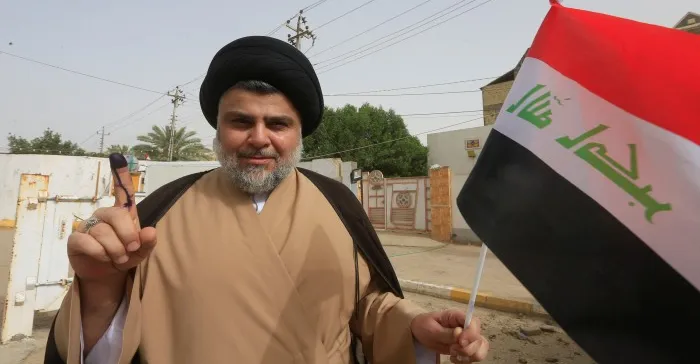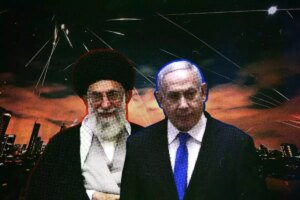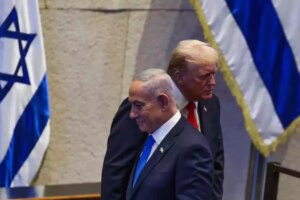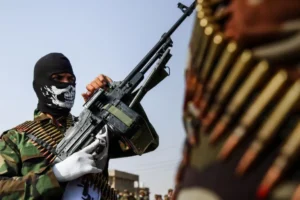
Shafaq News
Six days before Iraq’s parliamentary elections, scheduled
for November 11, the decision of the head of the Patriotic Shiite Movement
(PSM), Muqtada al-Sadr, to boycott the vote continues to cast a long shadow
over the political scene.
Observers warn that the withdrawal of al-Sadr’s
“well-organized and disciplined base” could significantly weaken voter turnout
and disrupt the political balance within Iraq’s Shiite bloc—particularly in
southern provinces where the movement has been a decisive electoral force in
previous cycles.
Rahman al-Jazaeri, a senior figure in the Coordination
Framework—the coalition that brings together Iraq’s dominant Shiite political
forces—told Shafaq News that the PSM boycott will affect the voter
participation, especially in the southern provinces, where field indicators
show very low levels of mobilization.
He noted that the Shiite component faces “a real dilemma
regarding participation, particularly after Sadr City—one of the movement’s
main strongholds—announced a complete boycott of the elections.”
According to al-Jazaeri, the boycott will not only affect
voter turnout but will also “reshape the dynamics of Shiite leadership and
political authority. Al-Sadr may have withdrawn from parliament, but he remains
a force within the governance equation.”
Al-Sadr announced in March his refusal to participate in the
upcoming elections, citing “rampant corruption and the dominance of the
corrupt,” warning that Iraq was “on the brink of collapse.” His withdrawal
followed his June 2022 decision to exit political life, resign his 73
parliamentary members, and refuse any future electoral participation alongside
what he called “corrupt politicians.”
Iraq’s political enigma: The unpredictable maneuvers of Muqtada al-Sadr
Political analyst Mujasheh al-Tamimi told Shafaq News that
the boycott will directly affect turnout rates, especially in Baghdad and
southern governorates where the Movement enjoys deep popular support.
“The movement’s wide and disciplined base has long been the
decisive factor in boosting turnout,” al-Tamimi said, adding that its absence
will shrink “the active electoral base and dampen public enthusiasm, which
will, in turn, undermine the perceived legitimacy of the electoral process
itself.”
He predicted that the boycott could create a political
vacuum within the Shiite camp, “opening space for other forces to court Sadrist
(PSM) voters, though none can replace the symbolic and popular weight the
movement represents.”
Cities such as Baghdad’s Sadr City, Basra, Maysan, and Dhi
Qar are expected to witness, he said, a sharp decline in participation, which
“could shift the internal balance of power within Iraq’s political landscape.”
Political analyst Aed al-Hilali views al-Sadr’s decision as
a critical juncture that will reshape voter behavior in key PSM strongholds.
“The absence of the PSM voters will lead to a noticeable
drop in turnout, weakening the popular momentum behind the election process,”
al-Hilali told Shafaq News. “This gives rival Shiite forces—chiefly the
Coordination Framework—greater leverage within the Shiite political sphere.”
He explained that Al-Sadr’s movement was “the most capable
of mobilizing the street and maintaining equilibrium among Framework factions,”
noting that their absence “will allow those groups to reorganize internally
without Sadrist pressure, but they will lose the mass-based balance that
provided broader national legitimacy.”
Al-Hilali warned that a low turnout confined to traditional
party bases could “weaken the image of unified Shiite representation before
other communities” and “open opportunities for Sunni, civil, or independent
forces to expand their presence in mixed provinces.”
“Even if absent electorally,” he added, “the Movement will
remain an active protest force capable of influencing any future political
phase.”
Under the 2023 amendments restoring the Sainte-Laguë
proportional representation formula, Iraq’s electoral system now favors
established parties and coalitions over mass-mobilization movements.
Analysts note that al-Sadr’s boycott therefore amplifies
this structural tilt, reducing the chances for independents or street-based
forces to convert popular energy into parliamentary seats—further consolidating
power within traditional blocs like the Coordination Framework.
Read more: Concerns and boycott: Will the Iraqi November elections proceed on schedule?
Offering a more measured view, Researcher in political
affairs Muhannad al-Rawi, argued that al-Sadr’s withdrawal will affect
participation rates but “will not dramatically change the Shiite bloc’s
numerical weight in parliament.
Speaking to Shafaq News, al-Rawi noted that the PSM has been
rooted in Shiite provinces since the first elections in 2005, and its absence
will reduce Shiite voter numbers, but will not grant other components
substantial gains.”
He pointed out that Shiite parties currently hold about 184
seats in the Iraqi parliament, “a figure unlikely to change significantly despite
the boycott.”
Under “the Sadrists” labeling, PSM won the largest number of
seats in the October 2021 early elections but failed to form a government after
the Coordination Framework blocked their efforts through a Federal Court ruling
establishing the so-called ‘one-third veto’ on presidential selection sessions.
Al-Rawi said that the Shiite bloc, die to Al-Sadr’s boycott,
might lose “four to five seats in Baghdad due to its mixed demographic,” yet he
believes this will not alter the overall sectarian composition, “as southern
and central provinces such as Najaf, Karbala, Al-Diwaniyah, Wasit, Basra, and
Dhi Qar are closed Shiite constituencies, unlikely to elect Sunni candidates
even in the PSM absence.”
He concluded that the next parliament is unlikely to see a
dramatic shift in communal representation, estimating that “Sunni
representation will not exceed 70 seats at best.”
Read more: Iraq’s 2025 elections: Five major Sunni alliances ignite the race
Written and edited by Shafaq News staff.





